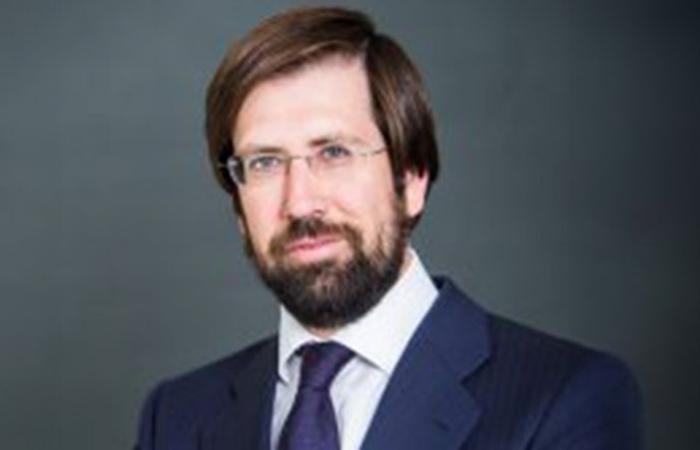
It is just under a year since Leonardo Fernández took on a more prominent role in Schroders’ Iberia office following the promotion of Carla Bergareche as global head of Wealth. This change not only affected his position, since, After 20 years at Schroders, he now heads the Iberia office, but also the structure at an internal level. In this sense, the company decided to organize its commercial teams into four main areas:
- Wealth (commercial and private banking, advice and platforms)
- Pensions
- Insurance companies and
- Long Term Asset Owners – mainly family offices, official institutions, endowments and sovereign funds
This restructuring, according to the manager, responds to “the need for specialization by segment of customers to better meet their specific demands with appropriate products and services.” However, he clarifies that this It does not necessarily imply having specialists in the four areas in each country. For example, the case of the Iberian market stands out, where 80% of the business is concentrated in wealth clients, although it recognizes the importance of having specific products and resources suitable for each of the four pillars mentioned.
Speaking about his new role within the team, he insists that His leadership is based on continuity and adaptability, more than in a revolution. Although significant changes have been made, these have been carried out by consensus with the team, maintaining the previously established vision and strategies.
Growth of family offices in Spain
In the long-term asset owners segment, in the case of Iberia, it is mainly channeled through family offices. According to Fernández, “the service is very time intensive, since it is about identifying who they are, lacking a record like in other segments.” Although private banking clients currently make up the bulk of Schroders’ business in Iberia, the manager has noted that in the last six years there has been a boom of new family offices in Iberia as a result of corporate actions of companies that are sold to listed or unlisted.
And family offices have their own needs. The head of Ibera highlights that, although there are large family offices, well structured and with investment teams that look for suppliers for various needs, there are also family offices that are not necessarily investment specialists. “This is where we are going to contribute a lot, helping you create an optimized portfolio”, he clarifies.
Innovation and Technology
Customers evolve, as do their demands. In recent years, ETFs are gaining relevance in Europe and many international management companies are betting on diversifying their business through them. Fernández considers that this is a topic always open to debate at Schroders, although he also remembers that significant volume is required in the passive ETF business given the low margins. “Schroders has some active ETFs in the US, since they are more efficient shells than traditional funds in that country. But in Spain the funds are more advantageous for distribution in private banking,” says the head of Iberia.
However, in this desire for innovation, the manager does see a new aspect of growth for the manager: digital assets. They are booming, but Schroders focuses on the underlying technology. “We are exploring tokenization of fundscollaborating with the Singapore government to create an ecosystem that streamlines processes and improves the customer experience and adapts to new generations,” says Fernández.
In private assets, its offer is varied
Another trend to highlight is private assets. They are on the cusp of a new era driven by global issues, and Schroders is no newcomer to this market. It has been offering private asset solutions for more than 25 years in real estate, infrastructure, debt and private equity, and already manages close to 100 billion euros.
“In the last 10 years Schroders has complemented its offer through the acquisition of boutiques specialized in assets in which we did not have capabilities, or, attracting talent to create those competencies internally,” adds Fernández.
As an example, in 2021 Schroders decided to strengthen its renewable infrastructure business with a stake in Greencoat Capital (now known as Schroders Greencoat), a boutique founded in 2009, a pioneer in large-scale renewable infrastructure investment. Schroders Greencoat currently has fund mandates with strategies investing in wind, solar and energy transition in the UK, Europe and the US and in total manages over 300 renewable infrastructure assets.
In addition, the manager points out that the company has worked to open this asset class to give access to a wider range of clients. For example, in 2019 through the creation of semi-liquid private asset fundsas well as the launch of its first Private equity ELTIF in 2023, replicating an institutional fund of European co-investments, but adapted to the needs of the Spanish market, scalable and with a historical track record. A notable feature of its product is that it does not have capital calls, but is managed through NAV (Net Asset Value) and, in addition, omnibus accounts can be used, which makes the work of distributors easier.
Mandates
Finally, Fernández highlights how delegated management through mandates has experienced notable growth in Spain. For Schroders it is another way of working with the client, and for this it is necessary to have the capabilities that clients are looking for, as well as the flexibility to adapt to their needs. According to the manager, “it is a model that makes perfect sense, especially with the RIS regulation, which limits the collection of incentives, but also because of the added value that national managers provide in terms of service to their networks.”
Mandates could be an interesting alternative for those managers specializing in private assetsalthough as Fernández comments, the issue is their structuring and in which not all international managers can compete.
“The asset management industry in Spain faces a changing and highly competitive environment, with more than 200 asset managers operating in the market. Despite this intense competition, some firms stand out for their track record, focus, financial strength and innovation,” concludes Leonardo Fernández.





